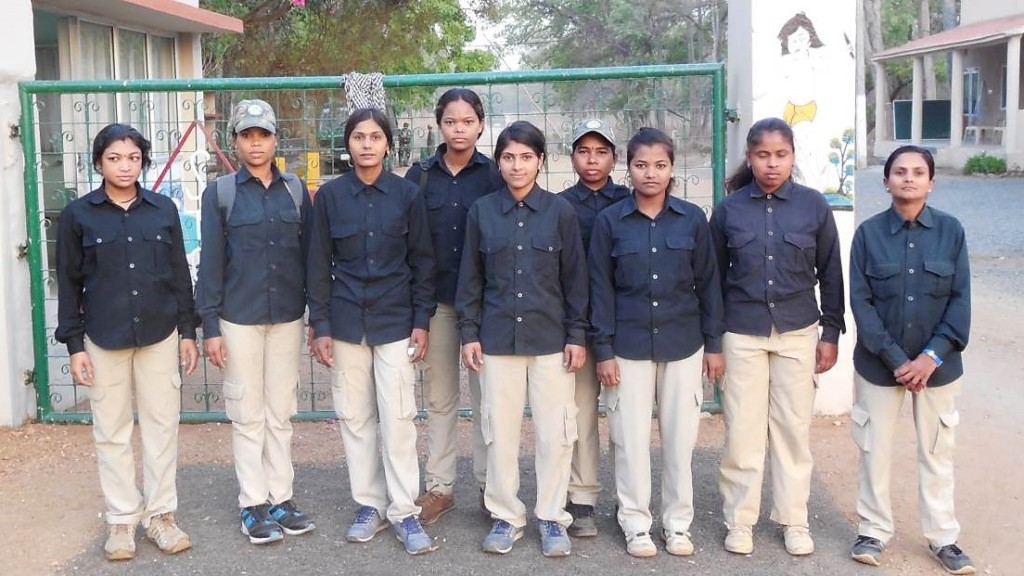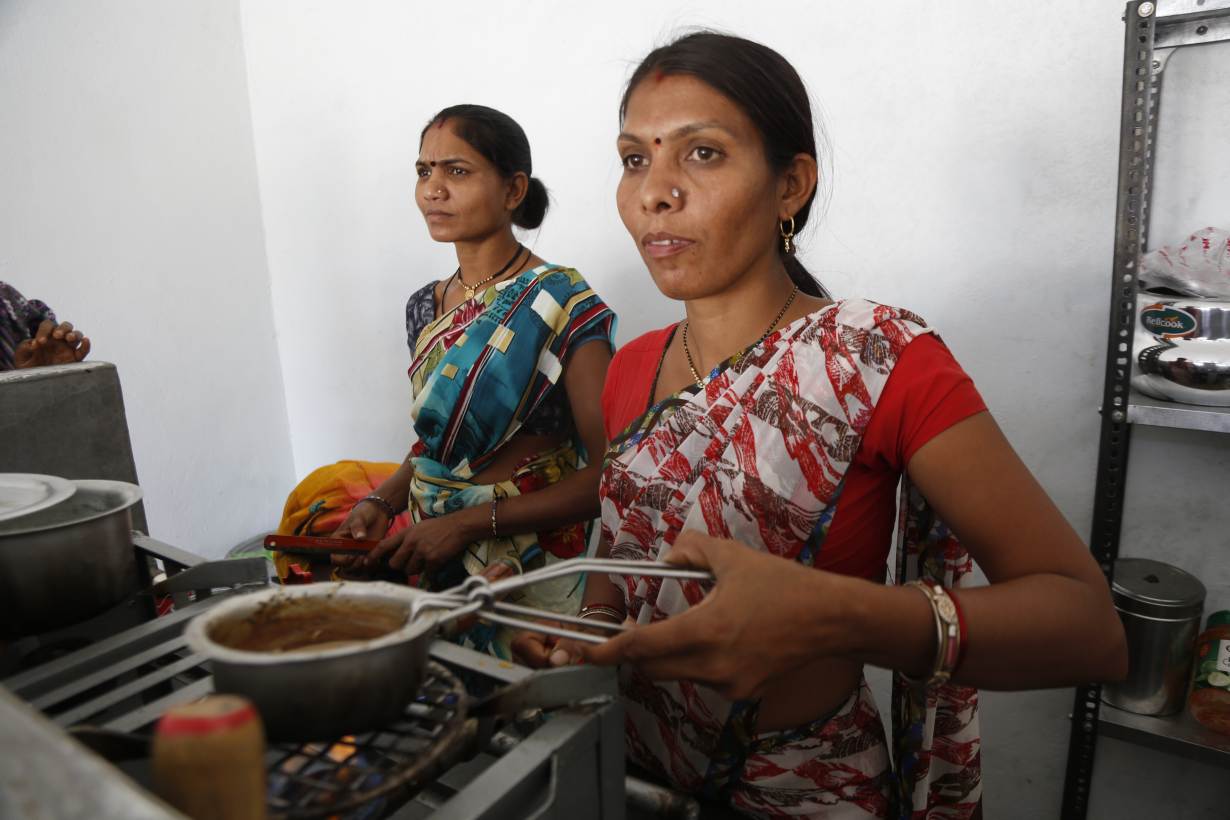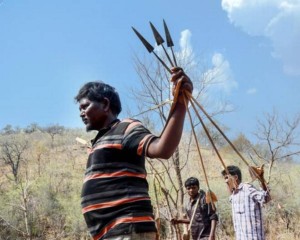On the tiger trail, India’s women unveil and roar ahead in tourism

Female nature-based tourism guides in India, such as at the Pench Tiger Reserve in Madhya Pradesh, are helping to upend sexist views, according to a report by the Thomson Reuters Foundation.
Bobbing along a dirt track in a central Indian tiger reserve, Varsha Hinge surveyed the landscape for pawprints and listened out for deer calls warning of tigers before holding up a finger for silence — as a tigress appeared in front of her jeep.
Hinge is one of 10 women safari guides at the Pench Tiger Reserve who are earning their stripes through long days helping tourists catch a glimpse of tigers, leopards and wolves.
From entrepreneurs to restaurateurs, dozens of women living near the national park are breaking with tradition in Madhya Pradesh, where village women veil themselves in front of men and are usually confined to their homes as mothers and homemakers.
“In the beginning, I was very hesitant and I doubted myself, thinking I wouldn’t be able to do this,” said Hinge, ahead of International Women’s Day on Friday.
“I live in a village with my in-laws and (initially) I just couldn’t get comfortable with the idea of wearing pants and shirts in front of them,” the mother-of-two told the Thomson Reuters Foundation.
The journey has not been easy for these women. Girls in Madhya Pradesh often drop out of school young and wed soon after to live a restricted life bound by age-old customs.
The female guides are helping to upend sexist views in India, which has one of the fastest growing major economies globally but startlingly few female employees, in large part due to prejudice against working women.
Only about one in four women work in India — home to 1.3 billion people — which is a lower rate than in most countries, according to the World Bank.
With no prior work experience and homes full of children and in-laws, the women had to overcome not only their own anxieties but also stiff opposition at home and in their new workplace.
Hinge said it took a lot of coaxing to get her husband’s support.
“I realised that as a homemaker, I would be limited to the four walls of my house and wouldn’t grow or contribute anything to my family,” she said.
“So, I decided to convince everyone and go for the job.”

Evil eye
Forsaking their traditional saris and kurta tunics, the national park’s first 10 female guides underwent months of training in spotting big cats to prepare for their unusual jobs, where they spend hours cooped up in jeeps with strangers.
“Before this, I didn’t even know how to interact with people properly … or know what the word for ‘tree’ or ‘bird’ was in English,” said safari guide Sunanda Kawal, 24.
“But after joining, I’ve seen a great improvement in myself. I’ve gained a lot of knowledge and my fears have started to fade away.”
As a series of safari jeeps lined up to enter the park, one male guide advised a tourist to stick with the men “if you really want the best experience”, saying his women counterparts were not as qualified.
The women guides said such comments were common. Most of the 50-odd male guides remain bitter, three years after the women joined their ranks, saying they are not up to the job and are taking their share of safari rides and pay, the women said.
Guides can earn up to 12,000 rupees ($170) a month — far exceeding the average for a rural Indian household.
“The male guides didn’t want us to work here at all. Even now, they keep to themselves and talk to each other, but not us,” said Kawal, adding that her male colleagues accuse the women of “casting an evil eye” on the park.
Hinge’s husband Pradeep Kumar, also a safari guide, said he was ostracised by his workmates for supporting his wife.
Yet he believes female safari guides have something new to offer — to their communities and customers.
“We have seen a change in the women since they got these jobs. It allows them to earn money and that automatically makes a difference at home and within the family,” said Kumar.
“Plus, there are always some women guests who come here and say, ‘We want a woman guide, not a man’. That way it is a win-win.”

Change
While male guides may still be icy, the women say villagers have started warming up to them after noticing the extra money they bring home, with many now supportive of their girls working outside the home.
That was one of the main goals for the Satpuda Foundation, which helps women to make and sell everything from pickles to takeaway meals as part of its community-based conservation work in the area — one of the world’s largest tiger landscapes.
“We have seen a change in attitude of locals,” said Kishor Rithe, the charity’s founder. “The tiger definitely plays an important role in the women’s economic development.”
Studies show that women who have financial control invest more in their children’s education, healthcare, businesses and communities, which can be a step out of poverty.
One of the Satpuda Foundation’s latest initiatives is the Mowgli Restaurant — a small, dimly lit roadside eatery named after the boy in Rudyard Kipling’s childhood classic “The Jungle Book”, which is believed to have been inspired by Pench.
Collectively owned and run by eight village women, the venture has made nearly 40,000 rupees since opening in December, serving rice, dals, curries and snacks to a growing number of customers on their way to and from the park.
Sandhya Daherwal heads a local women’s group which helped to set up the restaurant and other small businesses that have given about 100 women their own source of income since 2015.
“I wanted to do something with my life and I wasn’t going to let some naysayers stop me,” she said.
“Success speaks for itself. When you do well, your respect in society automatically rises. And thanks to the tigers here, that is happening.”
($1 = 70.7520 Indian rupees)
Featured image: A group of women safari guides poses for a photo at Pench Tiger Reserve in central Madhya Pradesh state, India on May 19, 2016. By Satpuda Foundation via Thomson Reuters Foundation. “GT” cropped and enhanced it.
Source: The Thomson Reuters Foundation, the charitable arm of Thomson Reuters. Reporting by Annie Banerji; editing by Katy Migiro.





